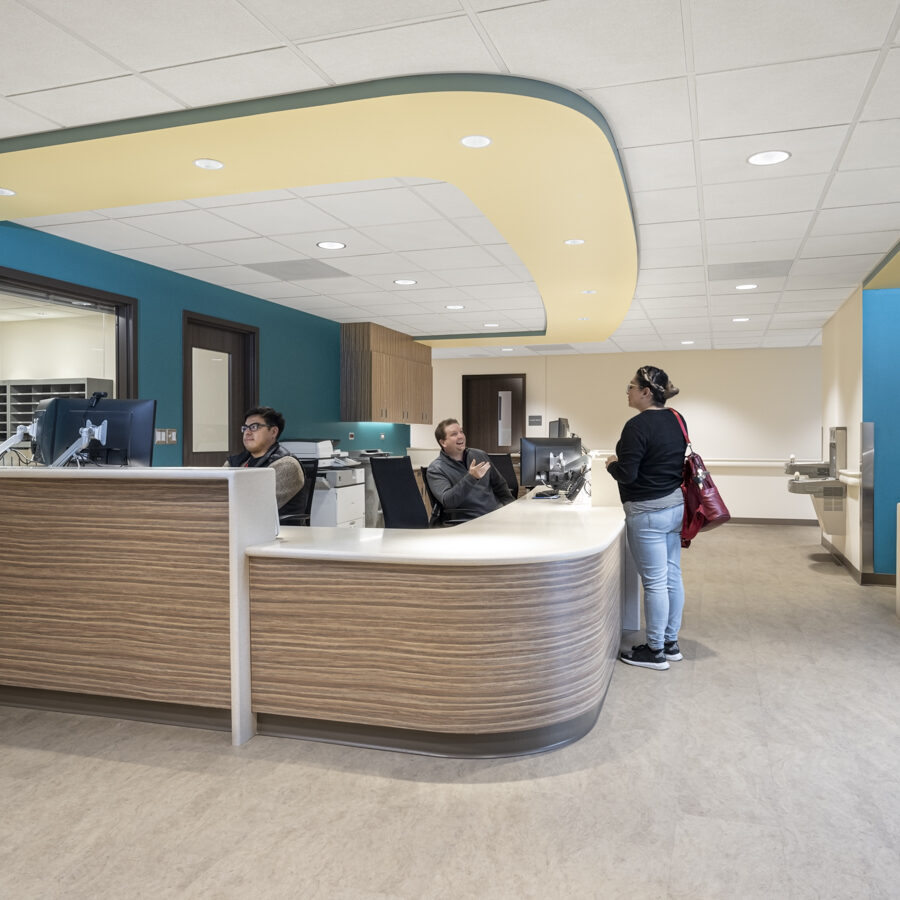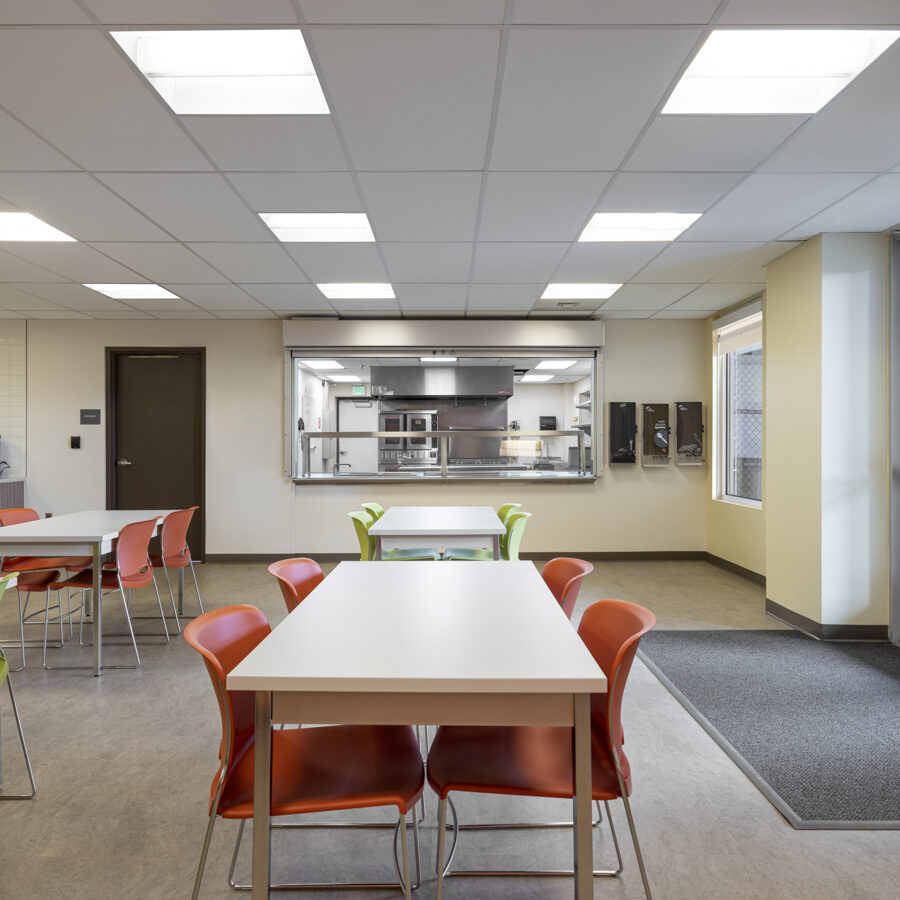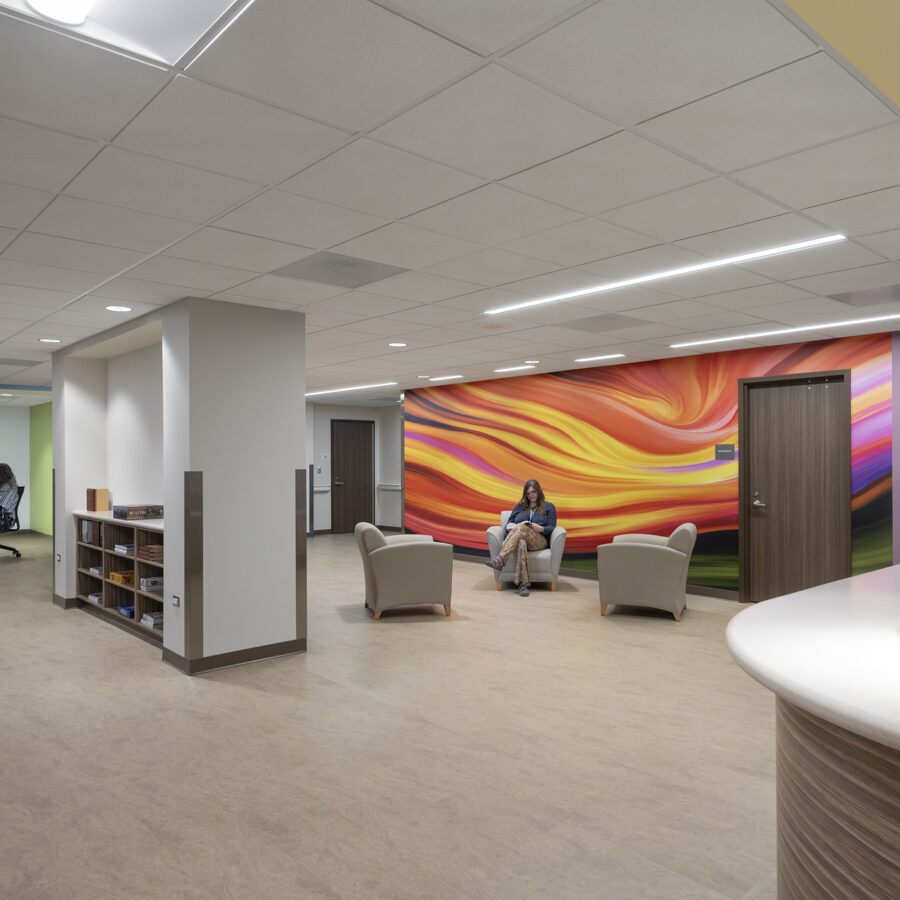Behavioral Health Solutions Center
About the Behavioral Health Solutions Center
The Behavioral Health Solutions Center is a 24/7/365 first responder drop-off location for individuals in the community experiencing a behavioral health crisis.
What Services are at the Behavioral Health Solutions Center?
Drop-Off Center for First Responders
- Adults (18+) can be dropped off by first responders for any behavioral health health crisis for immediate care.*
- People served can receive physical health and mental health evaluations and referrals.
- This facility is voluntary and cannot accept anyone on a mental health hold.
- People served may be referred to the Crisis Stabilization Clinic.

Crisis Stabilization Clinic
- People served can meet with a psychiatric nurse practitioner for medication evaluation, receive group and individual therapy, and can be
connected to outside resources. - People served can stay for up to ten days.
- Part of eligibility for the Crisis Stabilization Clinic is that people served must be a Denver resident (or unhoused in Denver).*

Transitional Shelter Program
- During the shelter stay, staff are available to assist in connecting people served to on-going care and community resources.
- Individual rooms and meals are provided.
- While in the shelter, staff are available 24/7.
- Shelter stay is up to 30 days.
- Upon completion of crisis services, eligibility for the shelter will be determined.

The Behavioral Health Solutions Center team includes: Licensed Clinicians, Peer Support Specialists, Residential Counselors, Nurses, Primary Care Nurse Practitioners, Psychiatric Nurses Practitioners, Administrative Support and a Food Service Provider.
*Please Note: the Behavioral Health Solutions Center cannot serve individuals with registered sex offenses or persons residing outside of Denver. Please also note that there is no public drop-off or walk-up access.
How Does Someone Get Into Services at the Solutions Center?
Step 1: A first responder drops off a person experiencing a behavioral health crisis. They are met by a team of professionals who provide assessment, resources, a safety plan and determine the need for a higher level of care.
Step 2: If admitted into the Crisis Stabilization Clinic, the person served will stay in a private room and participate in treatment to support their well-being. People served will meet with a psychiatric nurse practitioner for an evaluation, can attend up to three groups a day, participate in recreational activities, address physical health needs, meet individually with a peer support specialist and connect to community resources. All snacks, meals and basic necessities are provided.
Step 3: Once the person served has completed Crisis Stabilization Clinic services, they may be eligible to stay at the shelter for up to 30 days. During a shelter stay, a person might receive support with the following:
- Obtaining an ID
- Ordering a birth certificate
- Employment
- Ordering a social security card
- Applying for unemployment benefits
- Getting vaccines
- Setting up primary care and mental health services
- Housing resources
- Food assistance
- Can participate in up to three peer-led groups per day
Staff are available to assist in connecting people to ongoing care and community resources. Once the 30 days are up, the person transitions back into the community.
Please note that, as of May 2, 2022, we have changed our name from Mental Health Center of Denver to WellPower.
Learn more about the change here.

